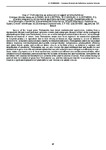Use este identificador para citar ou linkar para este item:
http://www.alice.cnptia.embrapa.br/alice/handle/doc/1037508Registro completo de metadados
| Campo DC | Valor | Idioma |
|---|---|---|
| dc.contributor.author | VAZQUEZ, E. M. | pt_BR |
| dc.contributor.author | RUBIO, M. B. | pt_BR |
| dc.contributor.author | BETTIOL, W. | pt_BR |
| dc.contributor.author | NICOLÁS, C. | pt_BR |
| dc.contributor.author | HERMOSA, R. | pt_BR |
| dc.date.accessioned | 2016-02-18T11:11:11Z | pt_BR |
| dc.date.available | 2016-02-18T11:11:11Z | pt_BR |
| dc.date.created | 2016-02-18 | pt_BR |
| dc.date.issued | 2015 | pt_BR |
| dc.identifier.citation | In: CONGRESSO BRASILEIRO DE DEFENSIVOS AGRÍCOLAS NATURAIS, 7., 2015, Pelotas. Anais... Pelotas: Embrapa Clima Temperado, 2015. | pt_BR |
| dc.identifier.uri | http://www.alice.cnptia.embrapa.br/alice/handle/doc/1037508 | pt_BR |
| dc.description | Species of the fungal genus Trichoderma have broad environmental opportunism, evolving from a mycoparasitic lifestyle to arivulent symbionts or even plant endophytes. Because of their ability to antagonize plant- pathogenic fungi some Trichoderma strains are used for biological control of plant diseases, acting through different mechanisms of action. Some Trichoderma strains have been registeres of commercial application as fungicide products in agriculture due the their efficacy of biocontrol, large capacity to survive in different environments, and genetic and phenotypic stability. In interaction with plants, Trichodermais able to increase plant defense responses, root development, plant growth, seed germination, leaf greennees, photosynthetic efficiency and carbon dioxide uptake, and a,eliorae abiotic stresses of facilitate a better assimilation of nutrients and detoxification of xenobiotics. Trichoderma spp. can also improve the plant nutritional level and modify the root architecture to get a more efficient nutrient uptake that can substantially increase nitrogen use efficiency in crops Some strains only express one of these mechanis,s, but the most efficient ones exhibit several of them, either simultaneously or sequentially, and can even favor the activities of rhizobacteri and mycorrhizae. Trichoderma can be ruthless with enemies but benefactor and protector of the plant in adverse situations. From a biotechnological point of view , the isolation of genes from Trichoderma spp. and this subsequent transfer to a plant genome may result in a significant improvement in plant defense and resistance to abiotic atresses. | pt_BR |
| dc.language.iso | eng | eng |
| dc.rights | openAccess | eng |
| dc.title | Use of Trichoderma as a biocontrol agent and biofertilizer. | pt_BR |
| dc.type | Resumo em anais e proceedings | pt_BR |
| dc.date.updated | 2016-04-15T11:11:11Z | pt_BR |
| dc.subject.thesagro | Trichoderma | pt_BR |
| dc.subject.thesagro | Controle biológico | pt_BR |
| dc.subject.nalthesaurus | Biological control | pt_BR |
| dc.format.extent2 | p. 37. | pt_BR |
| riaa.ainfo.id | 1037508 | pt_BR |
| riaa.ainfo.lastupdate | 2016-04-15 | pt_BR |
| dc.contributor.institution | E. M. VAZQUEZ, CIALE/Departamento de Microbiología y Genética, Universidad de Salamanca, Spain; M. B. RUBIO, CIALE/Departamento de Microbiología y Genética, Universidad de Salamanca, Spain; WAGNER BETTIOL, CNPMA; C. NICOLÁS, CIALE/Departamento de Microbiología y Genética, Universidad de Salamanca, Spain; R. HERMOSA, CIALE/Departamento de Microbiología y Genética, Universidad de Salamanca, Spain. | pt_BR |
| Aparece nas coleções: | Resumo em anais de congresso (CNPMA)  | |
Arquivos associados a este item:
| Arquivo | Descrição | Tamanho | Formato | |
|---|---|---|---|---|
| 2015RA023.pdf | 498,63 kB | Adobe PDF |  Visualizar/Abrir |









